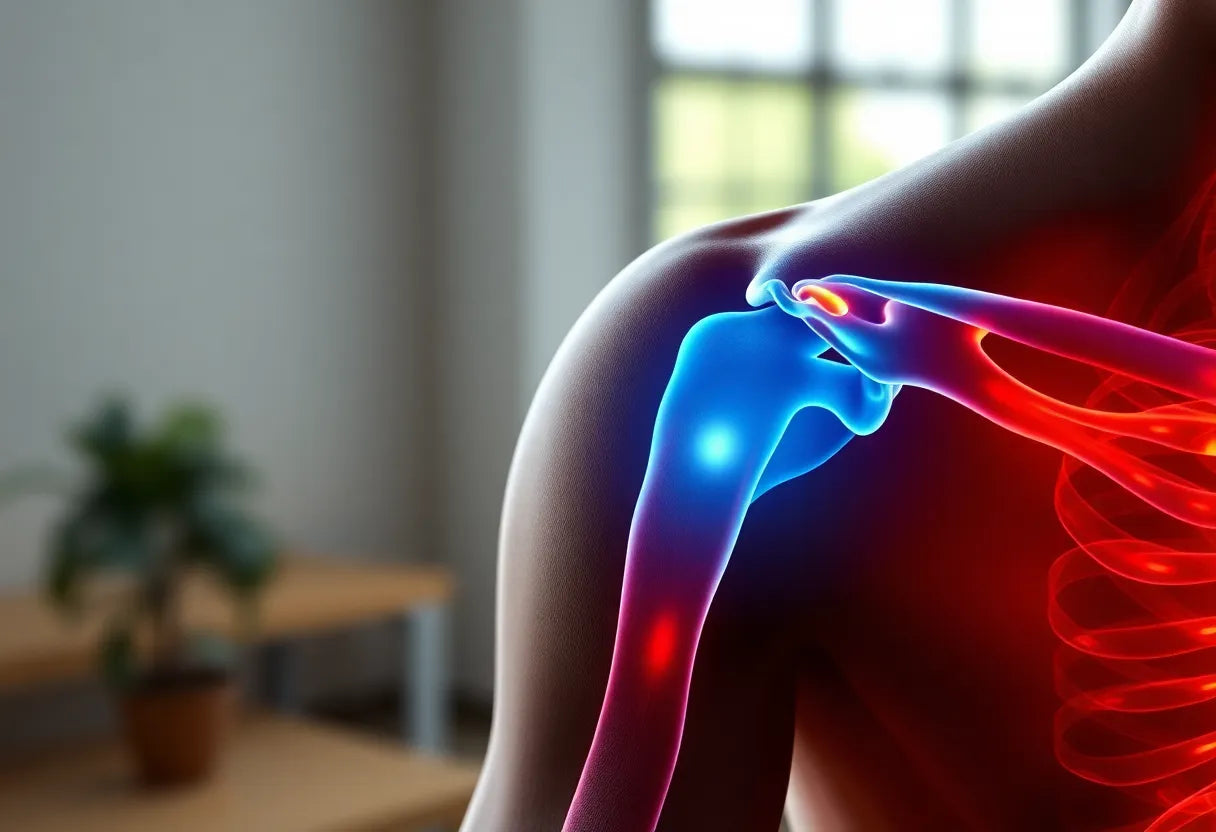Back pain when breathing can be an unsettling experience, ranging from a minor inconvenience to a potential indicator of a serious health issue. This discomfort might catch you off guard, especially when a deep breath or a simple stretch results in unexpected pain. While some instances of back pain associated with breathing are harmless and temporary, others may signal underlying medical conditions that require immediate attention.
Understanding the various causes of back pain when breathing is crucial for determining when to seek medical help. This knowledge empowers individuals to recognize whether their symptoms are benign or if they require professional evaluation. By pinpointing the origin of the pain, whether it's due to muscle strain, poor posture, or more severe conditions like pleurisy or a pulmonary embolism, one can make informed decisions about their health care.
Recognizing the importance of understanding back pain when breathing
Back pain when breathing can stem from a variety of sources, each with its own set of characteristics and implications. Musculoskeletal issues such as muscle strains or poor posture are common culprits and often resolve with simple interventions like rest and posture correction. However, when pain is accompanied by symptoms like shortness of breath, fever, or radiating discomfort, it could indicate more serious conditions such as pneumonia, a heart attack, or even a fractured rib.
This blog post aims to guide you through the maze of potential causes, helping you differentiate between minor annoyances and significant health concerns. We will explore common causes, highlight symptoms that warrant closer attention, and provide guidelines on when it is critical to consult a healthcare professional. By the end of this post, you will have a clearer understanding of how to manage back pain when breathing and when to seek expert advice.
Overview of what to expect
In the sections that follow, we will delve deeper into the typical causes of back pain when breathing, from musculoskeletal to respiratory and cardiovascular origins. You will learn about the signs that differentiate a simple muscle strain from a condition requiring urgent care. Furthermore, we will discuss treatment and management strategies that can be employed at home, as well as those necessitating professional intervention.
By equipping yourself with this knowledge, you can take proactive steps in managing your health, ensuring that you breathe easy, free from the worry of underlying issues. Remember, while some back pain may be harmless, understanding when to seek help is key to maintaining your well-being.
common causes of back pain when breathing
Understanding the underlying causes of back pain when breathing is crucial for effective management and treatment. This section will delve into the common causes, categorizing them into musculoskeletal, respiratory, cardiovascular, and other significant factors.
musculoskeletal causes
Musculoskeletal issues are among the most frequent causes of back pain when breathing. A muscle strain can occur from overuse, abrupt movements, or lifting heavy objects incorrectly. This type of strain often resolves with rest and simple home remedies. However, an intercostal muscle strain, which involves the muscles between the ribs, can cause significant discomfort, particularly when the ribcage expands during breathing.
Poor posture is another prevalent cause, leading to chronic strain on the back muscles. Over time, this can result in discomfort that becomes noticeable during deep breaths or physical activities. Maintaining proper posture and incorporating ergonomic practices can help alleviate and prevent such pain.

Men's Posture Shirt™ - Black
Patented shirt to improve posture, relieve pain, and support back and neck.

Lumbar support belt
Support belt for lumbar, stabilizing and relieving lower back pain anytime.
respiratory and cardiovascular causes
Back pain associated with breathing can also stem from respiratory and cardiovascular issues. Pleurisy, the inflammation of the tissues surrounding the lungs, can cause sharp, stabbing pain that worsens with inhalation. This condition requires medical evaluation to determine the underlying cause, which could range from an infection to more severe conditions.
A pulmonary embolism presents a more urgent scenario. This occurs when a blood clot blocks an artery in the lungs, leading to severe pain and shortness of breath. It is a medical emergency that requires immediate attention. Similarly, pneumonia can cause back pain due to the inflammation of the lungs' air sacs, often accompanied by fever and difficulty breathing.
In some cases, a heart attack can manifest as back pain, particularly if accompanied by shortness of breath and pain radiating to other areas like the arm or jaw. Such symptoms necessitate prompt medical evaluation.
other causes
Other less common but significant causes include scoliosis, a curvature of the spine that can affect breathing and cause pain, especially during physical exertion. Trauma-induced conditions, such as a fractured vertebra or rib, can also lead to pain that intensifies with movement or deep breathing.
differentiating between minor and serious conditions
Recognizing the difference between minor and serious conditions is essential for timely intervention. A symptom checklist can aid in this differentiation. Red flags include sudden sharp pain, pain accompanied by shortness of breath, fever, chills, radiating pain to arms or jaw, or a history of trauma or injury.
Conducting a self-assessment involves evaluating the pain's characteristics, such as its duration, intensity, and triggers. Monitoring associated symptoms like fever or nausea can provide additional insights into the underlying cause.
treatment and management strategies
For minor musculoskeletal strains, at-home care strategies can be effective. Rest, applying ice, and using over-the-counter pain relief can alleviate symptoms. Gentle stretching and posture correction exercises can also help in recovery.
However, for severe cases, professional care is crucial. Immediate medical attention is warranted for symptoms like severe pain, difficulty breathing, or chest pressure. Diagnostic tests such as X-rays, MRIs, or blood tests may be necessary to identify underlying conditions and guide appropriate treatment.
Understanding these causes and differentiating between minor and serious conditions empowers individuals to take control of their health. Whether through at-home care or professional intervention, addressing back pain when breathing promptly can prevent complications and ensure well-being.
Preventive measures and ergonomic solutions
Preventing back pain when breathing often begins with understanding the importance of ergonomics in daily life. Proper posture and ergonomic aids can significantly reduce the risk of developing musculoskeletal issues that lead to discomfort. Ensuring that your workstation is ergonomically sound, using supportive seating, and maintaining a neutral spine position are essential practices. These measures not only help in preventing back pain but also enhance overall comfort and productivity.
Incorporating exercises and lifestyle adjustments can further support back health. Core strengthening exercises, such as planks and bridges, are effective in building the muscles that support the spine. Additionally, breathing exercises can improve lung capacity and reduce strain on the back muscles during respiratory movements. Regular physical activity and maintaining a healthy weight also play a crucial role in minimizing the risk of back pain associated with breathing.
Frequently asked questions
What are the most common causes of back pain when breathing?
The most common causes include musculoskeletal issues such as muscle strain and poor posture. These conditions often result from overuse, incorrect posture, or sudden movements and typically resolve with rest and ergonomic adjustments.
When should I seek medical attention for back pain while breathing?
It is important to seek medical attention if you experience severe pain, shortness of breath, or symptoms like fever, chills, or pain radiating to the arms or jaw. Such symptoms could indicate serious conditions like a pulmonary embolism or heart attack, which require immediate evaluation.
Can poor posture really cause back pain when breathing?
Yes, poor posture can lead to muscle strain and discomfort that affects breathing. Over time, slouching or sitting incorrectly can place undue strain on the back muscles, leading to pain that becomes more noticeable during deep breaths or physical activity.
How can ergonomic aids help with back pain?
Ergonomic aids, such as adjustable chairs, lumbar supports, and sit-stand desks, help maintain proper alignment and reduce strain on the back muscles. These tools promote a neutral spine position and can alleviate discomfort associated with prolonged sitting or repetitive tasks.
Are there any exercises that can help alleviate back pain when breathing?
Yes, exercises that focus on core strength and flexibility can be beneficial. Core strengthening exercises help support the spine, while breathing exercises can improve lung capacity and reduce strain. Regular physical activity and maintaining a healthy weight are also important in managing and preventing back pain.
By understanding these preventive measures and knowing when to seek help, you can effectively manage back pain when breathing and take proactive steps to maintain your well-being. Remember, while some discomfort may be minor, recognizing serious symptoms and addressing them promptly is crucial for your health.
Kilder
- Healthline. (n.d.). "Back Pain When Breathing: Causes, Symptoms, and Treatments."
- Walgreens Blog. (n.d.). "Why Do I Get Back Pain When Breathing?"
- Medical News Today. (n.d.). "What Causes Back Pain When Breathing?"
- Vinmec. (n.d.). "Back Pain in the Lung Area with Shortness of Breath: Why Should You Be Alert?"
- Mayo Clinic. (n.d.). "Pleurisy: Symptoms and Causes."
- Cleveland Clinic. (n.d.). "Back Pain: Causes, Symptoms, and Treatments."
- Roswell Park Comprehensive Cancer Center. (2020). "What Causes Lung Pain in the Back?"
- American Dental Association. (n.d.). "Symptoms and Causes of Back Pain."
- Hinge Health. (n.d.). "Back Pain When Breathing: Causes and Solutions."


















